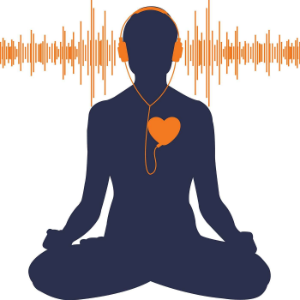
Nonviolence Radio
Education Podcasts
Exploring what makes nonviolence, as Gandhi said, "the greatest power at the disposal of humankind." Interviews with activists, scholars, and news-makers, and a regular feature of nonviolence in the news from around the movement in our Nonviolence Report segment.
Location:
United States
Genres:
Education Podcasts
Description:
Exploring what makes nonviolence, as Gandhi said, "the greatest power at the disposal of humankind." Interviews with activists, scholars, and news-makers, and a regular feature of nonviolence in the news from around the movement in our Nonviolence Report segment.
Language:
English
Contact:
707 774 6299
Website:
http://www.mettacenter.org/
Email:
info@mettacenter.org
Two Nonviolent Moments for Year's End
Duration:00:56:15
Rest as Resistance: Taoism and the Inner Practice of Nonviolence in Winter
Duration:00:55:00
Eyes on Sudan: A conversation with Sudanese organizer and activist, Mubarak Elamin
Duration:00:56:22
Yellow Gates and Olive Trees: Unarmed Civilian Protection in the West Bank
Duration:00:59:21
How we rise: Solutions journalist Sarah Van Gelder on galvanizing power through joyful, local action
Duration:00:56:25
A World Beyond War: Kathy Kelly responds to U.S. Secretary of War Pete Hegseth
Duration:00:56:06
Compassionate Healthcare: A Conversation with Dr. Deb Roman
Duration:00:58:19
“Closed Borders Don’t Keep Us Safe”: Journalist John Washington on Migration and Ethics
Duration:00:55:48
Curiosity as an Act of Courage: A Conversation with Mónica Guzmán
Duration:00:57:01
"God wants you to be free." A pastor with a mission to help survivors of domestic violence.
Duration:00:59:42
Regenerative Economics as a Pathway Forward for Humanity: Erin Axelrod of LIFT Economy on Practicing a Vision of Nonviolent Economics
Duration:00:58:31
To Be Blessed and Broken: Anne Symens-Bucher on Grief, Forgiveness, and Joanna Macy’s Wisdom
Duration:00:58:37
Fierce Vulnerability: A Conversation with Kazu Haga on Trauma and Nonviolence
Duration:00:55:46
From the Flotilla to the Frontlines: Peacebuilding, Protest, and Dilemma Actions
Duration:00:58:40
The Work of Trust
Duration:00:58:30
A Strategic Nonviolence Academy
Duration:00:56:57
Feeling the Political Divide
Duration:00:55:25
When Toxic Polarization Becomes a Civil War–and what we can do about it
Duration:00:57:51
"There Is Another Way"
Duration:00:58:19
Crossing Borders with Nonviolence
Duration:00:55:13